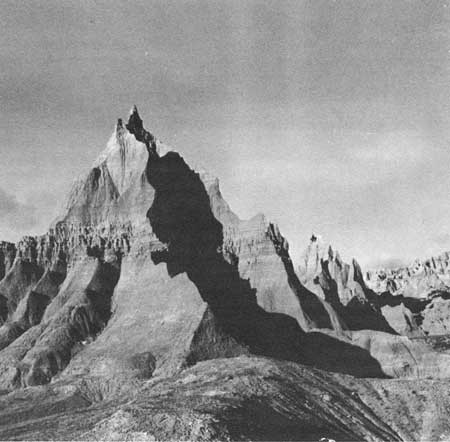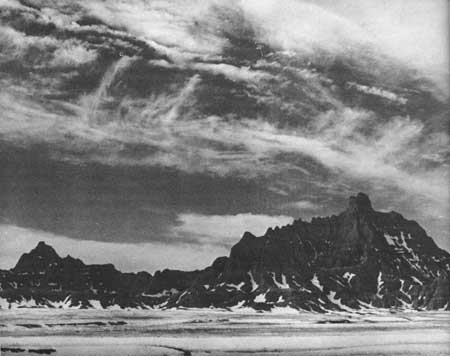|
BADLANDS National Park |
 |
Establishment of the Monument
Beginning with the establishment of Yellowstone National Park in 1872, "dedicated and set apart as a public park or pleasuring ground for the benefit and enjoyment of the people," the United States has evolved a system of National Parks, National Monuments, and other areas which include the most inspiring of the Nation's scenery and many sites of outstanding historic, prehistoric, or scientific interest.
The National Park Service, a bureau of the U.S. Department of the Interior, was established by an act of Congress on August 25, 1916, to correlate the administration of the National Parks and Monuments then under the jurisdiction of the Department. The act directed the Service to "conserve the scenery and the natural and historic objects and wildlife therein and to provide for the enjoyment of the same in such manner and by such means as will leave them unimpaired for the enjoyment of future generations."
 The rocks exposed in the badlands are approximately 40 million years old |
The Act for the Preservation of American Antiquities, which had become a law on June 8, 1906, authorized the President of the United States to set aside as National Monuments, by proclamation, lands owned or controlled by the United States containing historic landmarks, historic or prehistoric structures, and other objects of historic or scientific interest. The first National Monument established under this authority was Devils Tower, in northeastern Wyoming, in 1906. Another National Monument well known to Black Hills visitors is Jewel Cave, established in 1908.
With but few exceptions, National Monuments are established under the authority of the Antiquities Act without recourse to further legislation. In a sense, Badlands National Monument is one of these exceptions, because the Congress, by Public Law No. 1021, 70th Congress (45 Stat. 1533), approved in 1929, authorized its establishment contingent upon two specific conditions: That certain lands be acquired and that the State of South Dakota build a road from interior northwesterly through the monument across Big Foot Pass to the Pinnacles and to Sage Creek. These conditions were met, and Badlands National Monument was officially proclaimed on January 25, 1939.
 A winter scene in Badlands National Monuemnt |
The late United States Senator from South Dakota, Peter Norbeck, was the chief proponent for the establishment of the monument. It was mainly through his efforts that the area was set aside. "Norbeck Pass" in the badlands commemorates his work.

|

|
|
|
|
Last Modified: Sat, Nov 4 2006 10:00:00 pm PST |


